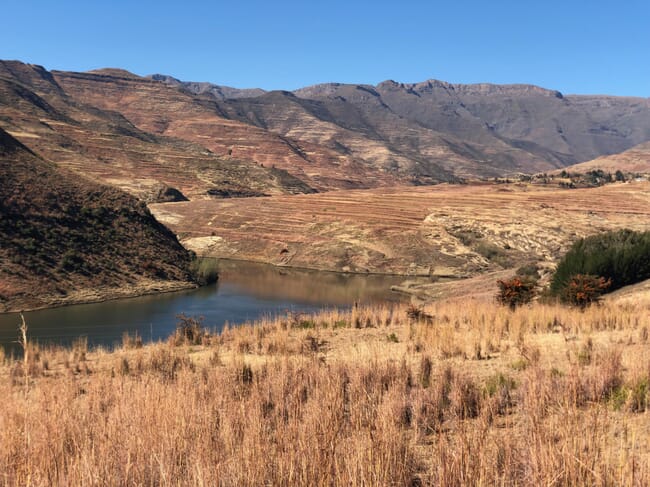Land-based salmon farming company, Pure Salmon, has announced a new 20,000 tonnes RAS facility in Africa. Located in the Butha-Buthe Highland region of the Kingdom of Lesotho, the $250 million state-of-the-art farm will be developed in partnership with the Lesotho National Development Corporation (LNDC) and is predicted to have annual revenues accounting for 8 percent of the country’s GDP.

Pure Salmon, which launched in 2018, aims to become the world leader in high-quality, clean, sustainable and fresh salmon. The new Lesotho site fits directly within this by not only providing sustainable salmon free of antibiotics, pesticides, hormones and microplastics, but also by bringing a new industry to the country as the first land-based salmon farm. Due to complete by 2023, the project will generate over 250 full time jobs in Lesotho and will be powered on 100 percent renewable energy from the adjacent hydroelectric power station.
As part of the new landmark deal between Pure Salmon and the LNDC, the sustainable salmon company will also be setting up a foundation to support the local community. The 8F & Pure Salmon Foundation will sponsor an aquaculture education programme at the National University of Lesotho, with 15 international internships available at Pure Salmon’s facilities across the world. One million free salmon meals per year will also be provided to local schools and orphanages during the first 10 years of the facility’s operation. As part of its impact investing ethos, Pure Salmon will provide shares through direct ownership of the site to the communities which offer their unused land for the salmon farm.
Speaking about the announcement, Stephane Farouze, Board Director of Pure Salmon and Chairman and Founder of 8F Asset Management – Pure Salmon’s parent company – said: “Not only is Lesotho one of the most dramatically beautiful countries in the world, the Highlands are also the source of some of the purest natural water reserves in the world. This directly complements the Pure Salmon pledge to deliver sustainable Atlantic Salmon, free of microplastics, antibiotics, pesticides and other contaminants.
“Through our partnership with the LNDC and investment in the Lesotho site, we hope to provide increased opportunities for the local community through the production of sustainable salmon. Whether that’s providing new jobs, offering training opportunities in the aquaculture industry or contributing to the LNDC’s commitment to diversify the country’s agriculture industry, we look forward to bringing this project to fruition.”
The agreement for the project was signed by LNDC CEO, Mr Mohato Seleke, in the presence of Lesotho government ministers the Hon Moeketsi Majoro, Minister of Finance; Hon Habofanoe Lehana, Minister of Trade and Industry, and Hon Samonyane Ntsekele, Minister of Water.
At the signing ceremony, Mohato Seleke remarked: “I sincerely believe this partnership will yield tremendous results for Lesotho as a whole. The Pure Salmon product is a high-end consumable and Lesotho boasts the perfect conditions for producing it. It is for this and numerous other reasons that we are engaging in this agreement with Pure Salmon and 8F.”
The Hon Habofanoe Lehana said: “The government has been tasked with growing the economy of Lesotho to ensure a stable and prosperous future for generations to come. It is our prime duty to see that this task bears fruit, such as the fruit we are planting today with the Pure Salmon project.”
The announcement follows the company’s ambitious launches with a fully operational facility in Poland (producing adult-size fish of 5-6kg) and projects underway in Japan, China, Bahrain, America and Europe, that will contribute to Pure Salmon’s aim to produce 260,000 tons of salmon per annum.
Each Pure Salmon farm uses Recirculating Aquaculture System (RAS) technology, a proven and scalable method of aquaculture which sees the fish reared in the healthiest living condition possible, that closely replicates the positive qualities of their natural environment. As such, Pure Salmon has a 40 percent lower cost of production compared to traditional sea-cage farming.


